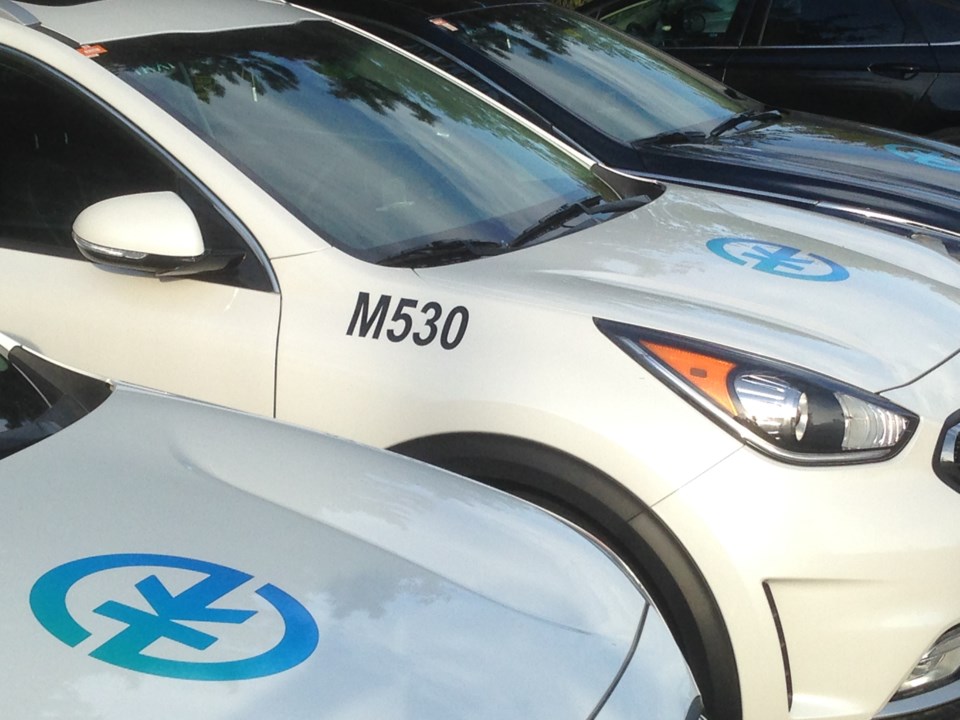Ride-hailing company Kater Technologies says it has officially applied for a licence that would allow it to operate in every region of British Columbia.
A statement from the company said B.C. is one of the last areas of North America without ride-hailing and the province now has an opportunity to introduce the service in the “right way.”
Kater CEO Scott Larson said the company hopes to launch operations across Metro Vancouver, Victoria, Nanaimo and the Okanagan by this winter, with operations in other B.C. regions rolling out over 12 months.
Kater is proposing a system of pricing that would slide from a minimum of 90 per cent of current taxi rates to a maximum of 200 per cent, a range it says addresses consumer concerns about prices rising when demand is higher.
Transportation Minister Claire Trevena said last week that eight ride-hailing companies, including Uber, had filed licence applications with the Passenger Transportation Branch of her ministry.
Ontario-based Uride announced Thursday it would launch its service in Victoria, Nanaimo, Prince George, Kelowna and Kamloops before the end of the year.
A coalition of nine Vancouver taxi companies has asked the B.C. Supreme Court to quash policies it says were illegally created for ride-hailing, arguing binding guidelines for ride-hailing services should not have been set before individual applications were heard.
Kater’s goal is to serve growing consumer demand while improving “inherent downsides” linked to other ride-hailing providers, Larson said.
The company said it will include 250 wheelchair accessible vehicles in its network and will also use location-based pricing and driver incentives to encourage Kater drivers not to abandon suburban service during peak hours.
“Assuming that the Passenger Transportation Board approves our pricing model, our drivers are projected to earn at least $25 for every hour that they are active on the Kater platform,” said the statement.



